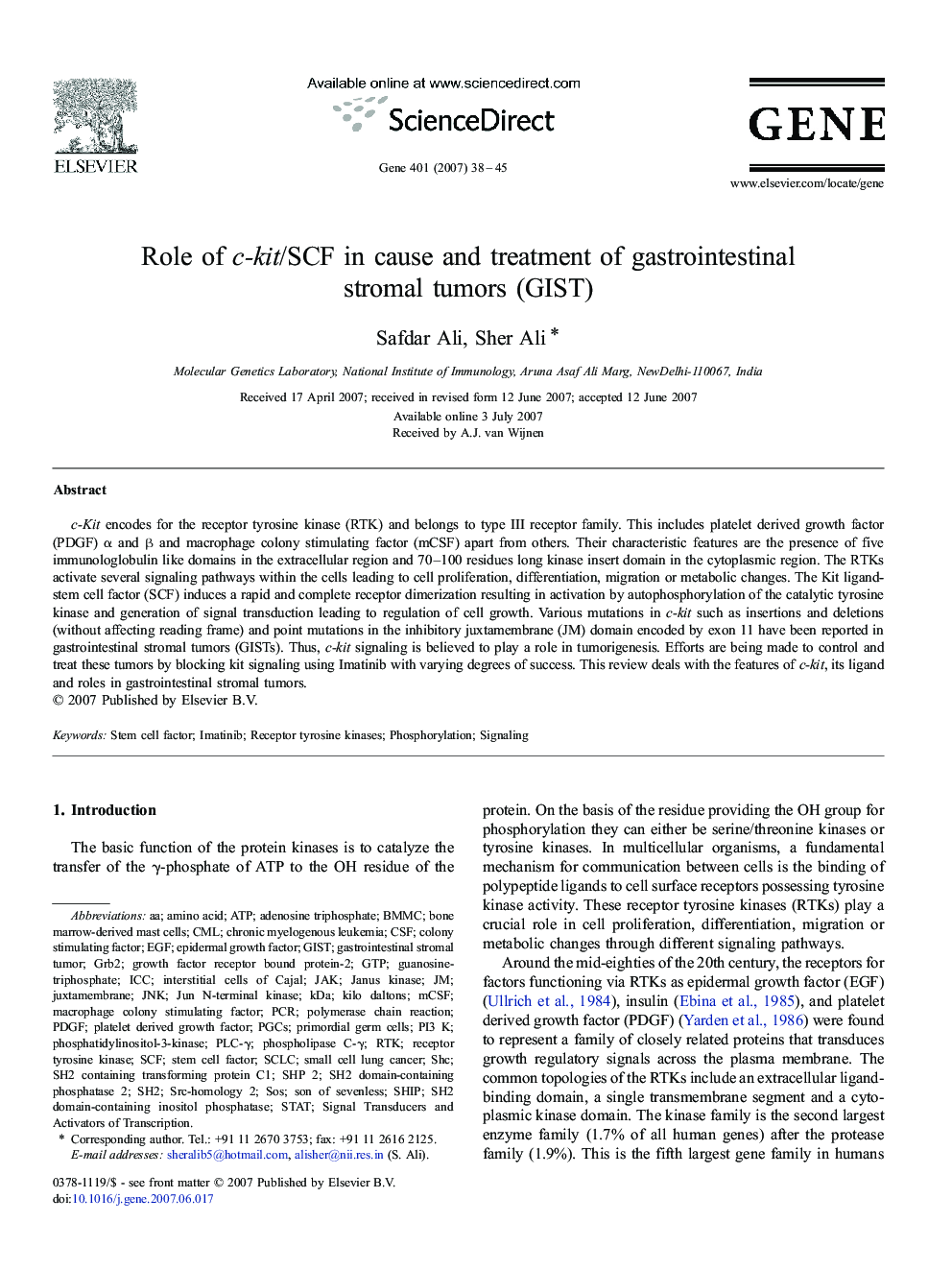| کد مقاله | کد نشریه | سال انتشار | مقاله انگلیسی | نسخه تمام متن |
|---|---|---|---|---|
| 2819547 | 1569929 | 2007 | 8 صفحه PDF | دانلود رایگان |

c-Kit encodes for the receptor tyrosine kinase (RTK) and belongs to type III receptor family. This includes platelet derived growth factor (PDGF) α and β and macrophage colony stimulating factor (mCSF) apart from others. Their characteristic features are the presence of five immunologlobulin like domains in the extracellular region and 70–100 residues long kinase insert domain in the cytoplasmic region. The RTKs activate several signaling pathways within the cells leading to cell proliferation, differentiation, migration or metabolic changes. The Kit ligand-stem cell factor (SCF) induces a rapid and complete receptor dimerization resulting in activation by autophosphorylation of the catalytic tyrosine kinase and generation of signal transduction leading to regulation of cell growth. Various mutations in c-kit such as insertions and deletions (without affecting reading frame) and point mutations in the inhibitory juxtamembrane (JM) domain encoded by exon 11 have been reported in gastrointestinal stromal tumors (GISTs). Thus, c-kit signaling is believed to play a role in tumorigenesis. Efforts are being made to control and treat these tumors by blocking kit signaling using Imatinib with varying degrees of success. This review deals with the features of c-kit, its ligand and roles in gastrointestinal stromal tumors.
Journal: Gene - Volume 401, Issues 1–2, 15 October 2007, Pages 38–45